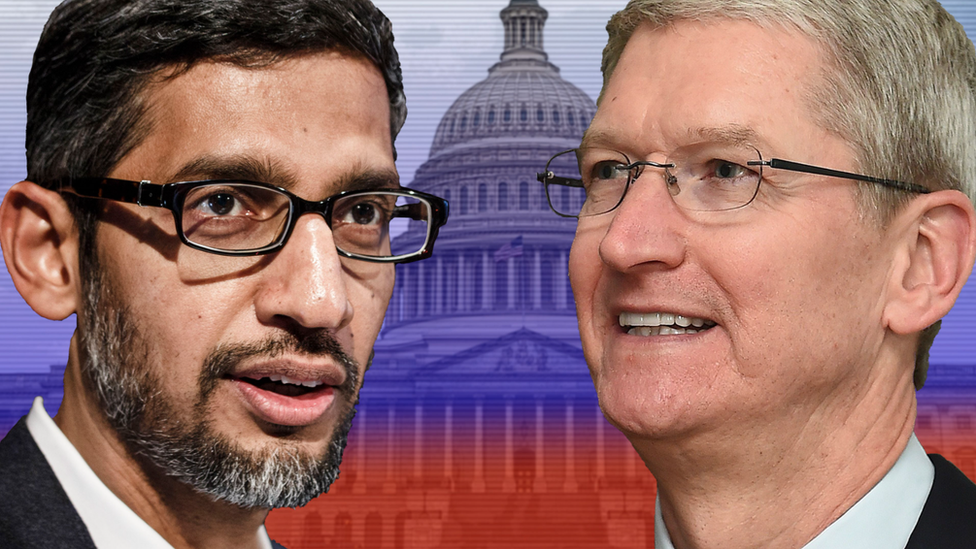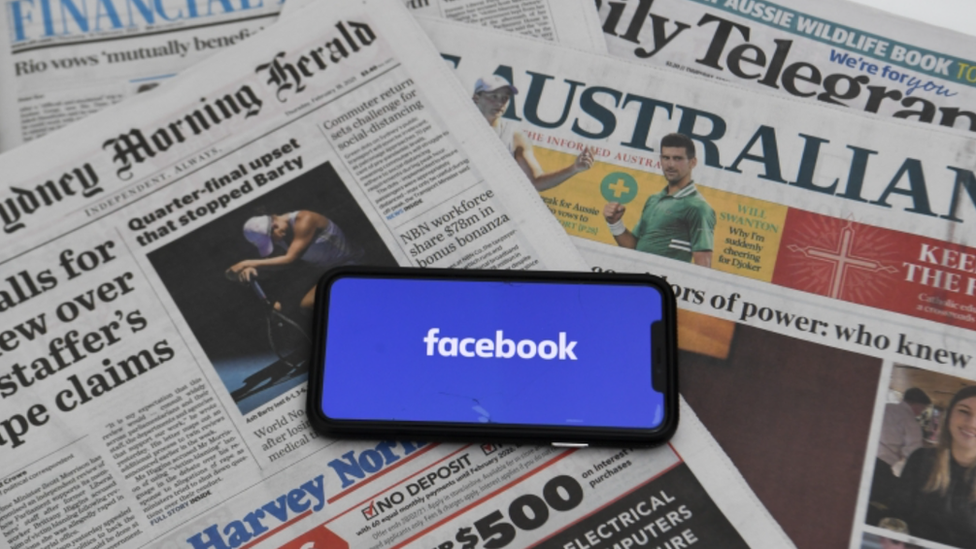Australia warns Google and Apple over app stores
- Published

The Australian Competition and Consumer Commission (ACCC) said measures are needed to address Apple and Google's app store dominance.
"Apple and Google don't only run the app marketplaces, they also compete within them with their own apps," said the chairman Rod Sims.
The ACCC on Wednesday suggested giving users and developers more control over purchases.
It's the latest move by Australia to rein in big tech's market power.
The global dominance of Apple's App Store and Google's Play Store has been criticised by app makers for mandatory revenue sharing payments.
"The ACCC is also concerned with restrictions imposed by Apple and Google which mean developers have no choice but to use Apple and Google's own payment systems for any in-app purchases," Mr Sims said.
The competition watchdog recommended allowing users to remove and replace Apple and Google's pre-installed apps from their phones.
App developers should have more information about how their apps are made discoverable, while the two tech giants should be prevented from using data collected from their app stores to promote their own apps, the ACCC said.
Increased scrutiny over app stores
Australia isn't the only jurisdiction to look into the market dominance of Google and Apple's app stores.
Earlier this month, Google and Apple were accused by other companies of restricting access to app developers and charging commissions as high as 30% for paid downloads.
The latest push to scrutinise apps comes several months after Australia became the first country in the world to pass a law aimed at making Google and Facebook pay for news content on their platforms.
The move that garnered worldwide attention because newspaper and other publishers in other countries have long complained about the practice.
Facebook initially fought the new laws by dropping all news articles in Australian search requests.
Facebook and Google had earlier argued the law "fundamentally" misunderstands how the internet works.
But they both reversed course and offered to work out deals after the country passed the new law.
- Published22 April 2021

- Published25 February 2021

- Published23 February 2021
